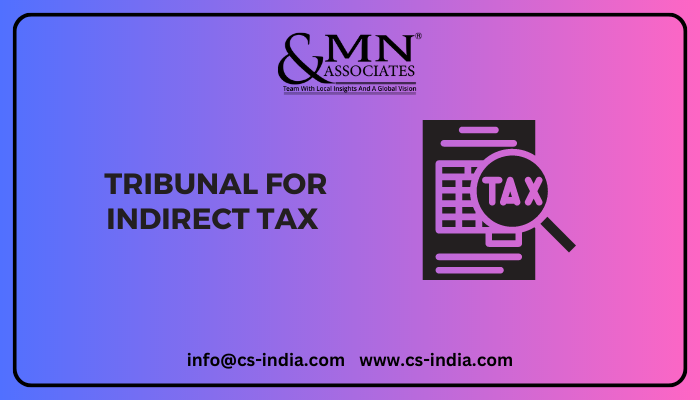
Tribunal for Indirect Tax Litigation
The evolution of business has led to severe tax complexities. Tax compliances are getting increasingly difficult day by day. Tax is an obligation to pay to the government when your income exceeds the exemption limit.
Apart from the direct tax that is charged on income, the government also charges indirect tax on goods and services. The burden of this tax is on the ultimate consumer.
One of the complex aspects of this is the litigation. There have always been disputes between the assessee and the government, arising due to tax non-payment or delayed payment by the taxpayers or unwanted/unauthorized tax collection by the authorities, etc. Here we are going to talk about the Tribunal for indirect tax litigation.
Setting up of Tribunal for Indirect Tax Litigation
To reduce the compliance burden for taxpayers and provide a common forum for dispute resolution between the Centre and states, the Goods and Services Tax (GST) Council has considered setting up a GST Appellate Tribunal (GSTAT) for expeditious resolution of indirect tax litigation. It has been now five years and the non-availability of the GST tribunal has increased the workload of high courts being the only remedy available to taxpayers.
The Council, in its 47th meeting on June 28-29, 2022, formed a GoM to address various concerns raised by the states over the constitution of the tribunal. A group of ministers (GoM), constituted to consider the issues about GSTAT, has submitted its report. The GST Council in its 49th meeting adopted the report of the Group of Ministers with certain modifications. The final draft amendments to the GST laws were circulated to Members for their comments. The Chairperson finalized the same.
The Lok Sabha has recently passed Finance Bill, 2023 with 64 amendments, including one that seeks to set up the much-awaited GST Appellate Tribunal (GSTAT).
The tribunal will be a common forum that will ensure uniformity across the country in the redressal of disputes arising under the GST regime. Currently, taxpayers who are aggrieved by adverse orders passed by the authorities are compelled to approach high courts for redressal, which is time-consuming.
Why Setting up of Tribunal is important?
- This will save the time and cost of lengthy court proceedings.
- It will be the common form of dispute resolution between the center and the states.
GSTAT is the forum of the second appeal for all disputes between businesses.
Section 109 of the CGST Act “empowers the Centre to constitute, on the recommendation of Council, by notification, with effect from such date as may be specified therein, an Appellate Tribunal” known as GSTAT.
Some important features of the Appellate Authority
- The Goods and Services Tax (GST) Appellate Tribunal is likely to be headed by a former Supreme Court judge or a former Chief Justice of a High Court and its framework may permit the resolution of disputes involving dues or fines of less than Rs. 50 lakh by a single-member bench.
- GSTAT will have a “Principal Bench” in New Delhi, with the President, a judicial member, a technical member (center), and a technical member (state). It will also have state benches.
- It is further proposed that the cases involving the issue of the place of supply would be heard by the Principal Bench only.
- A four-member search and selection committee, headed by either the Chief Justice of the Supreme Court or his representative judge from the SC, will be tasked with the appointment of members (except for technical members from states) to the Benches.
- The panel will include the President of the GSTAT (one of the judicial members of the Principal Bench), a union government secretary, and a state chief secretary nominated by the Council. The chairperson will have a casting vote.
The establishment of much awaited Appellate Tribunal will help quickly resolve disputes relating to the key indirect tax and boost tax collections, addressing concerns of both industry and tax authorities.
Need help guidance on Indirect taxes?
Feel free to write us at info@cs-india.com
